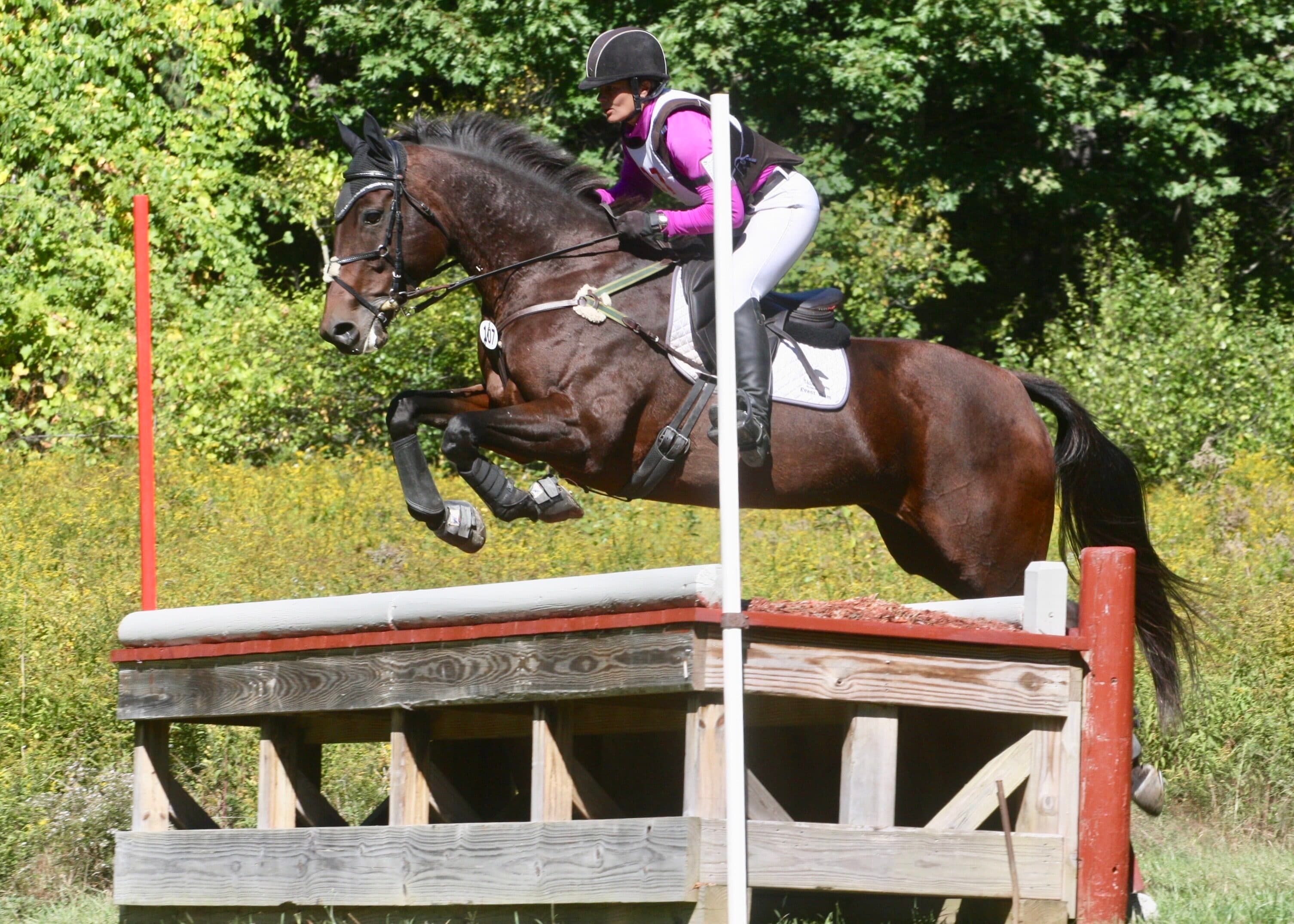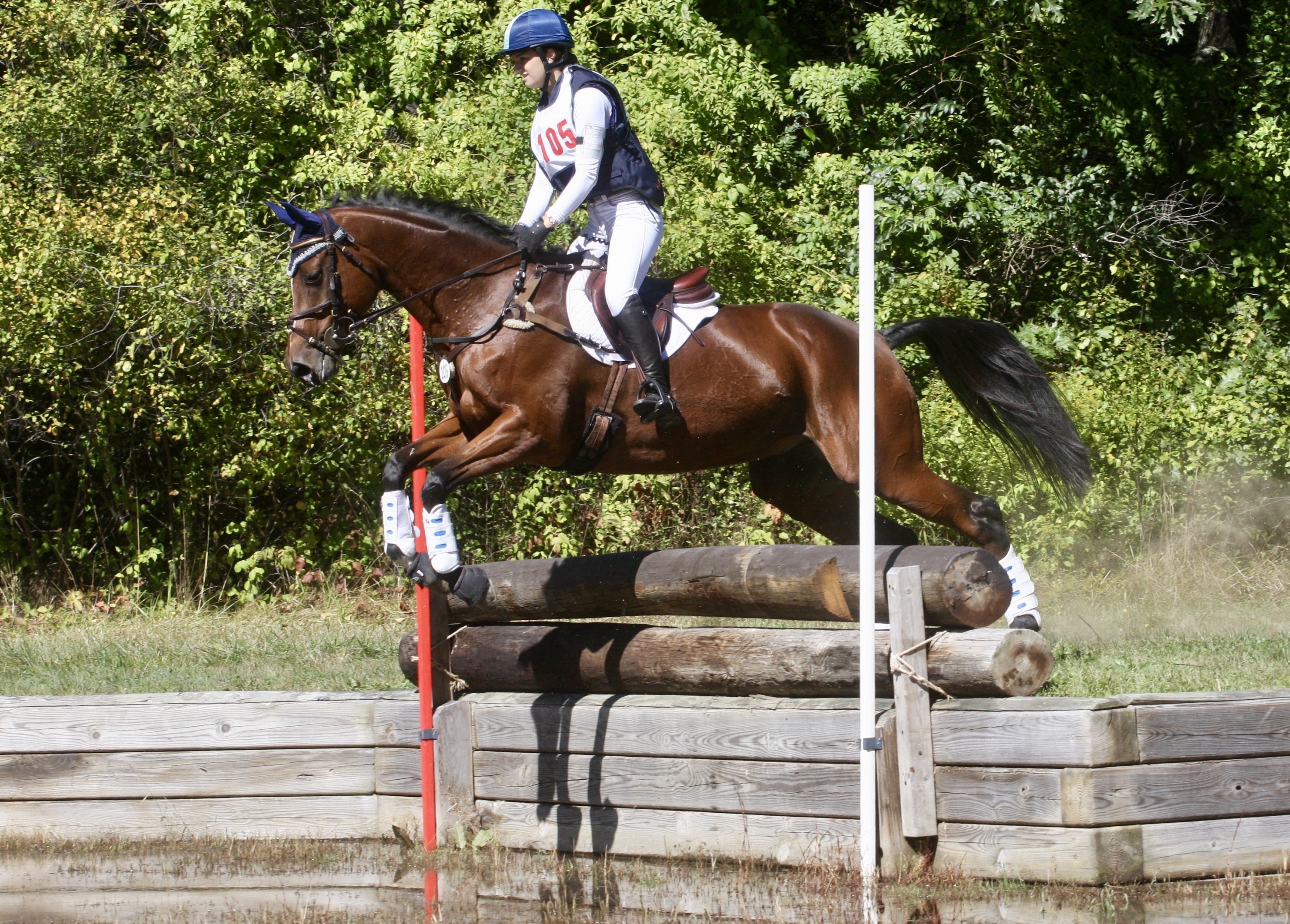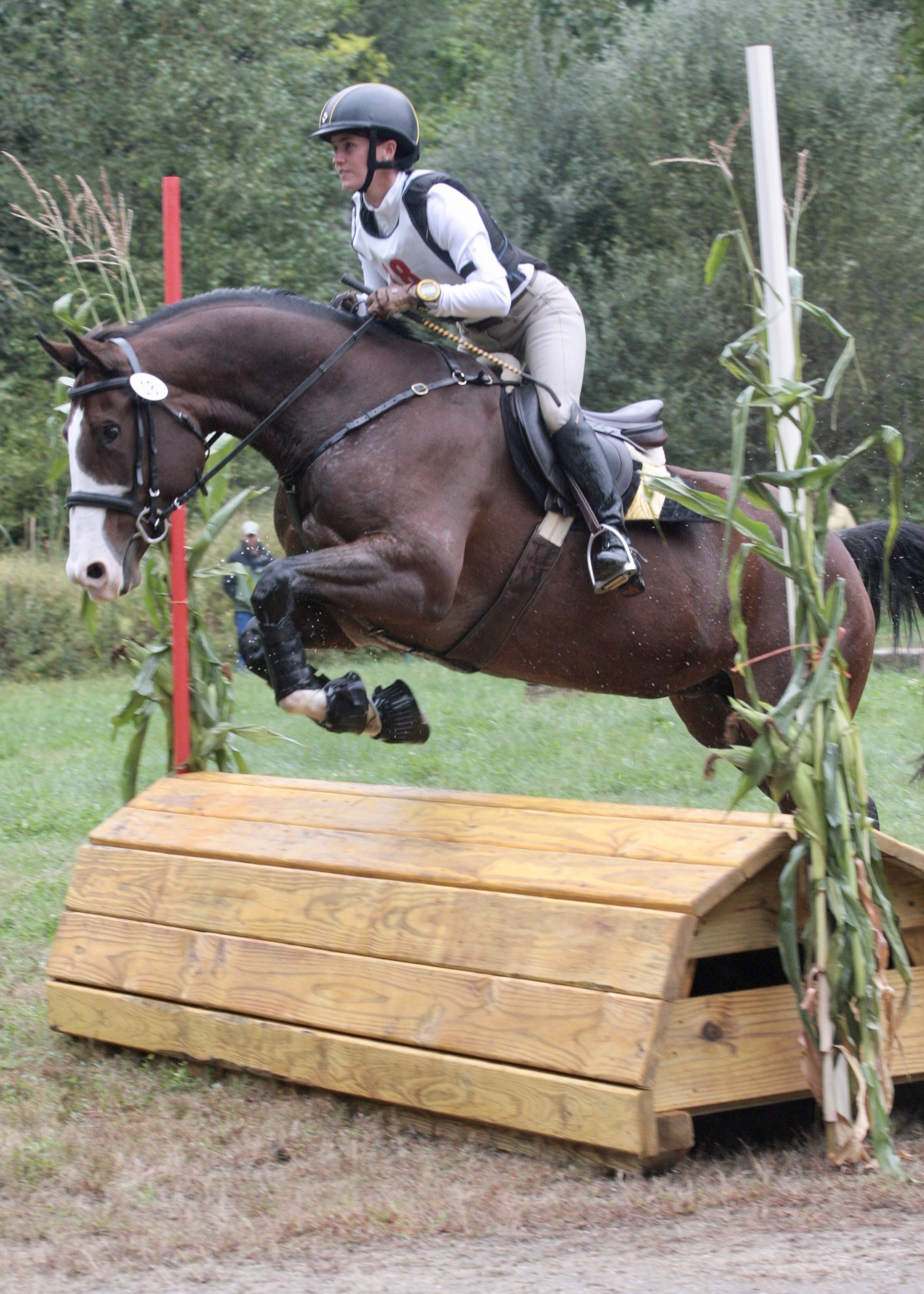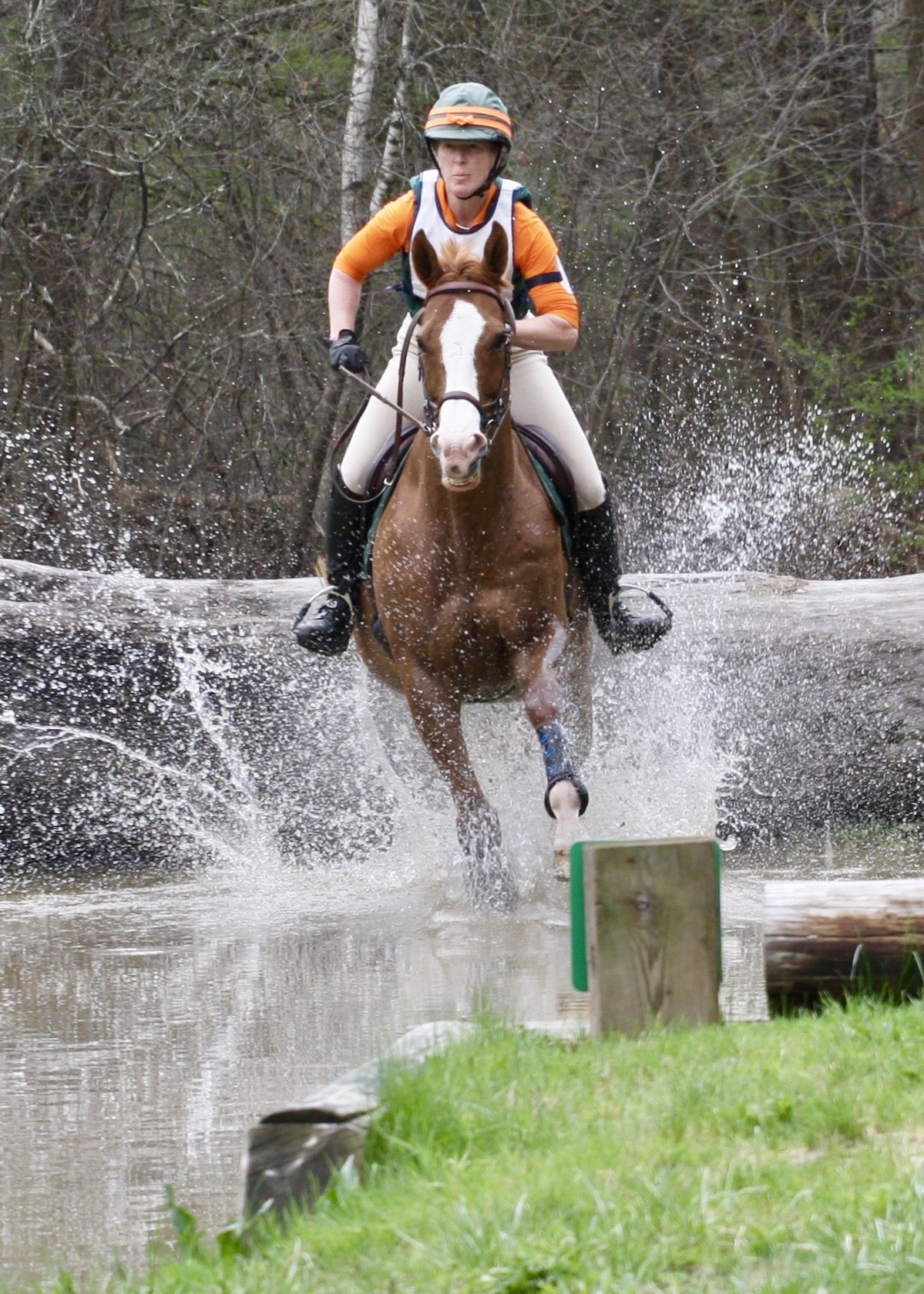USEA Events A-Z: University of New Hampshire Horse Trials

The University of New Hampshire Horse Trials (UNH) in Durham, New Hampshire (Area I) run twice yearly – once at the end of April and once at the end of September. Both events offer Beginner Novice through Preliminary levels.
The UNH Horse Trials were founded in the early 1970s by students in the Animal Science degree program and UNH Horseman’s Club under the direction of Janet Briggs, a faculty member who was with the program for over 50 years. There is some disagreement as to whether the first competition was held in 1971 or 1972; one source claims to have a photograph (never produced) of a competitor riding here “in the inaugural event of 1969.” The best evidence available is that it started in 1971.
We published a 40th Anniversary Retrospective Booklet in 2011, and in interviews for that document, Briggs shared with us that in the early 1970s, eventing in New England was in its infancy. Only a handful of formal eventing competitions were in existence at that time, and Briggs saw the potential for hosting a competition at the university. Briggs spent the majority of her 50-plus year career at UNH and came from a background of hunters and showing Morgans; in the early 1970s, she got her first taste of eventing in Hamilton, Massachusetts, and decided it was vastly more fun. The early cross-country jumps here were quite . . . rustic. Most were built by students learning to use tools for the first time!

With the exception of the first years, UNH hosted biannual events every year until 2009, when a third event was run during the summer months. We went back to biannual events with the 2014 season. Despite its reputation for soggy weather, the competition has never been wholly cancelled due to weather (hopefully I didn’t just curse us by saying that!)
Briggs is, of course, an “S” eventing judge, and ran the competition for more years than anyone else. Linda Bland (class of 1974) was a student here at the time and then was hired immediately upon graduation to work for the equine program; she helped run the event in its early years. Nancy Guyotte (class of 1972) was also involved in the competition’s inception and has come back as both a competitor and official. Jim Gornall (class of 1974) has been the course designer here for over a decade though was not involved with the event’s early years.
Perhaps one other “fun fact” is that in its nearly 50 years, UNH Horse Trials has only had three organizers: Briggs (1971 until her retirement in fall of 2005), Sarah Hamilton Rigg (Spring 2006 through Fall 2007), and myself (Spring 2008-present).

Many internationally known riders got their start here at UNH; our programs contain names such as Ashley MacVaugh, Karen Stives, Stephie Baer, Denny Emerson, Mark Weissbecker, Kerry Millikin, Nancy Guyotte, J. Michael Plumb and the late Jim Stamets (among many others) – some of whom were riding in the junior divisions at the time!
Perhaps one of the most notable stories about our event involved the late Neil Ayer. In the late 1980s, when the university seized the land on which the cross-country course had been built in order to construct several student apartment complexes (the remnants of a bank complex are still visible along their parking lot), it looked as if the era of eventing at UNH would come to an end. Briggs and Ayer had struck up a friendship, and he traveled to Durham to speak with UNH leaders, including the university president, to impart the significance and importance of the event to both the university and the greater equestrian communities. Later, Ayer was instrumental in designing an alternate route for the cross-country course, using some forested lands and the perimeter of the UNH Woodman Agricultural Research farm.
Our whole competition is held on the college campus. We have three dressage arenas (two dirt and one grass) with an adjacent dirt warm-up area – these were built in the 1990s with proceeds from previous competitions. Prior to that, dressage was held across the street from the equine facility in Boulder Field (requiring a police escort to help horses navigate Durham’s Main Street), and then for several years competitors actually had to ship out to do dressage at a facility called Green Acres in Madbury. Show jumping also was once held in Boulder Field, but in recent years it has been held in a dirt parking lot that we resurface for each competition.

Cross country still largely sticks to the route conceptualized by Ayer all those years ago. The entire course is reversible, so we usually run counterclockwise in the spring and clockwise in the fall. Half of it navigates wooded trails, with a few small openings, and then the rest is on the fields of the Woodman Farm.
Our cross-country courses are wooded and winding! Competitors often enjoy the view from our reservoir bridge (if their horses aren’t too busy spooking at it!) and are challenged with the transition from forest to field and back. It can be hard to make time here because of the need for some regulation of speed in the woods, and for those divisions in which we can adjust speed, we manage it accordingly.
Our event is quite unique in that it is, as far as I know, the only horse trials held wholly on a college campus in the U.S. Our students also still play an extremely critical role in the preparation and management of our trials, though they are fortunately no longer expected to help physically build the cross-country jumps!

We use our competition as a “living lab” for the students in our equine program. Upperclassmen take a course with me in which we discuss all of the many logistics, decisions, and labor required to prepare a facility for equestrian competition; these students serve as our committee chairs, and they, in turn, supervise a crew of students enrolled in our horsemanship classes. Collectively, the students do almost everything—they set the dressage rings; groom the cross-country footing; and stain, decorate, and set up jumps for both courses. They work directly with our officials to adjust equipment and ensure that the facility is ready.
On the weekend of the event, students oversee the crews for each phase and keep things running smoothly. For many of them, being a committee chair is one of the first times in their lives they have been given this much responsibility or authority, and often they do not come from an eventing background, so they also have to learn about the sport, its rules and what competitors are expecting. I know of more than one student who has decided to give eventing a try after being involved with our competition! But perhaps more importantly, all of our students come away with an increased understanding and appreciation for what it takes to put together ANY equestrian competition, a more acute awareness of the need to volunteer when you can and be kind to the volunteers when you compete, and how most organizers are walking a very thin financial line between success and failure.
For me, my favorite part of the weekend is watching our students go from feeling overwhelmed by what they have to accomplish to feeling so much pride and success in watching it all come together.
The USEA is profiling the history behind all USEA recognized events in the USEA Events A-Z series.















